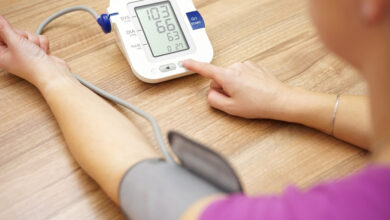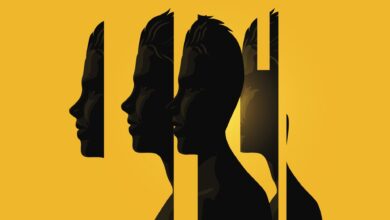Written by April Weedman, Medical Editor
Few things are more miserable than being trapped in an endless loop of fear, anxiousness, stress, dread, panic attacks, obsessive worries and phobias inside your own mind. Anxiety disorders are the most common mental illness in America affecting approximately 40 million people. Almost 30% of Americans will suffer with an anxiety disorder at some point in their lives.
The good news is there is plenty of research being done in this area and now there are more tools available than ever to help people cope with this debilitating disorder. For many years prescription medications have been the predominant treatment for anxiety disorders. Although these medications may temporarily relieve symptoms of anxiety disorders, they can cause dependency and addiction, can have negative long term effects on brain chemistry, can cause numerous other side effects and they don’t cure anxiety because they do not address the root cause.
The first place to start when getting to the root of anxiety is proper digestion, elimination and the overall health of your gastrointestinal tract. You may be wondering how that could possibly be related to mental illness, but the brain and intestines are intimately linked through the Brain-Gut-Axis and everything that happens in your gut directly affects your brain which is why the gut is now referred to as the “second brain”. Poor digestion prevents you from getting all the raw materials your brain needs to make chemical messengers called neurotransmitters and hormones which help keep your brain and mood happy and healthy.
Neurologist, Dr. David Perlmutter, points out numerous clinical studies that show the microbes that inhabit your gut play a critical role in mental illness and suggests that we eat the right foods not just to feed ourselves but to also feed the good microbes that help take care of our brains. His suggestions include things like fermented foods such as sauerkraut, kimchee and kefu, onions, leeks, jicama (Jerusalem artichoke) and green plantains.
Psychiatrist, Dr. Kelly Brogan, says the three most important diet changes to make for anyone with mental illness is to eliminate gluten, sugar and genetically modified organisms (GMOs) because they kill the good microbes and feed the bad microbes and also contribute to inflammation which is another factor underlying mental illness.
Functional Neurologist, Dr. Datis Kharrazian, points out studies that show gluten does major damage to brain tissue and activates inflarnmation in the brain that self-perpetuates and does not turn off which can trigger any number of mental and physical illnesses. For anxiety disorders Dr. Kharrazian recommends supplements that promote GABA and serotonin such as 5-HTP or tryptophan, B-complex, magnesium ( oral and Epsom salt baths), zinc, L-theanine, taurine, valerian root extract, passion flower extract, and lithium orotate (not to be confused with the prescription drug lithium carbonate). These supplements can also help play a role in good sleep and wake cycles which is another critical factor for a healthy brain and also a key to proper hormone function.
All of these physicians also discuss the importance of blood sugar control and the role it plays in all mental illness because of the enormous stress it places on the brain and suggest the avoidance of processed, sugary or high carbohydrate foods. They also stress the importance of eating ample protein and healthy fats in order to support overall brain health.
A genetic condition called Pyroluria causes anxiety disorders by creating nutrient deficiencies through pushing out too much zinc and B6 in the urine. This condition is easily diagnosed through a urine test and if found, easily fixed by supplementation with zinc and B6.
Meditation has shown very promising results in clinical trials for anxiety disorders and even had lasting results for ongoing benefits. If you have a hard time meditating there are plenty of guided meditations to listen to and many new apps that can help too. An app called Inner Balance by a company called HeartMath is something similar to meditation but measures your heart rate variability (HRV) and guides your breathing to get you into to the zone to achieve the best HRV coherence. There is a lot of good data behind HRV coherence and management of anxiety or stress. They also have a device called the em Wave that does the same thing but without the need for a smartphone.
Acupuncture has also proven to have benefit for anxiety disorders, but if you don’t like the idea of hair-like needles being stuck into you there is a practice called Tapping or Emotional Freedom Technique that allows you to use your fingers to tap on the same meridian energy lines that acupuncturists use. There are plenty of books and videos that describe the process and it is surprisingly easy and effective.
You may notice that adult coloring books are everywhere these days and are promoted for antianxiety. This is because there is data showing that when people who suffer with anxiety disorders do repetitive motions with their fingers it can be very calming and comforting. Other things that work the same way are playing musical instruments like guitar or piano and knitting or crocheting, etc. It is very common for people with anxiety to gravitate to things like this since they find it naturally relaxing.
Hyperbaric oxygen treatments are getting more attention for all kinds of mental illnesses now because the data is showing outstanding success even for such extreme anxiety conditions such as posttraumatic stress disorder. Scuba diving can also provide similar benefits and may provide easier access and the added calming effect of water and beautiful views.
Other things that can be helpful are cognitive behavior therapy, massage, essential oils and carefully selecting consumption of media, especially the news which is enough to send anyone into a tailspin, let alone someone with anxiety disorder!






